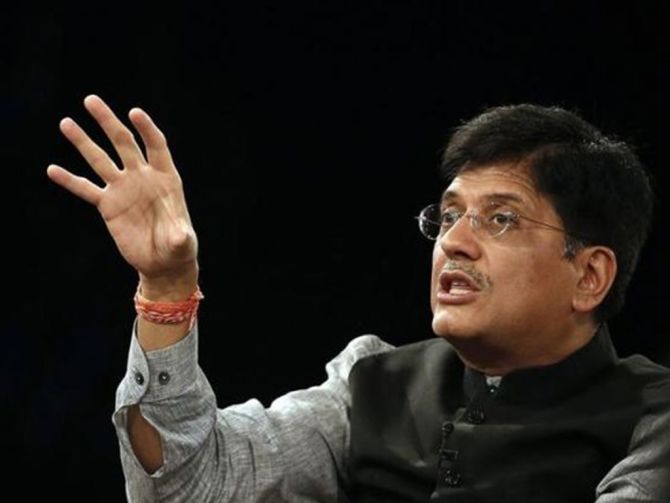Among the major ones are fewer restrictions on market access for US medical device manufacturers, as well as access for other key products.

Tariff issues related to agriculture and import of medical devices from the US, and the reinstatement of export incentives under the American Generalized System of Preferences, are likely to dominate discussions between India and the US.
These issues were said to be highlighted during Goyal’s meeting with US Trade Representative (USTR) Robert Lighthizer on November 13, said people in the know.
Top officials from the ministries of health and agriculture, as well as some from the Indian Council of Medical Research and All India Institute of Medical Sciences, have accompanied Commerce and Industry Minister Piyush Goyal for his three-day visit to the US, they added.
This meeting assumes significance at a time when New Delhi has openly backed a bilateral deal with the US - a significant change in its position.
US President Donald Trump’s administration has pushed India towards lowering import duties across sectors.
Proliferation of issues with its largest export destination had led New Delhi to target a ‘mini trade deal’, focused on finding an amicable solution to some of the US’ biggest demands.
Among the major ones are fewer restrictions on market access for US medical device manufacturers, as well as access for other key products.
Goyal will be meeting Scott Walker, president of AdvaMed (the American medical device trade association), which had repeatedly lobbied with Washington DC to push India to dismantle its price cap regime for crucial medical devices, said people in the know.
New Delhi had earlier considered allowing a trade margin policy for coronary stents.
Further, India had earlier prepared plans for a mutually acceptable 'trade package' that provides an amicable solution to major grouses from both sides, according to a senior trade negotiator.
Washington D.C. also wants India to reverse the higher duties placed on 29 key (mainly agricultural) imports from the US.
New Delhi had announced higher tax by up to 50 per cent on import of high-value apples, almonds, walnuts and wines.
The new taxes are estimated to rake in an estimated $240 million in additional taxes, and India has claimed the amount was equal to the estimated loss faced after the US imposed a 25 per cent additional levy on steel, and 10 per cent on aluminium products from many countries including India, in May 2018.
A bilateral trade deal has remained a key US demand, which has been repeatedly rebutted by India, up until earlier this year.
With Prime Minister Narendra Modi by his side, Trump had promised a trade deal with India “very soon”.
In return, the US has offered to step back from its aggressive posturing on ‘reciprocal taxes’.
While the US has not targeted India specifically yet, it has dropped repeated hints saying tariffs on Indian imports could be raised I line with those on Chinese products.
Photograph: Anindito Mukherjee/Reuters